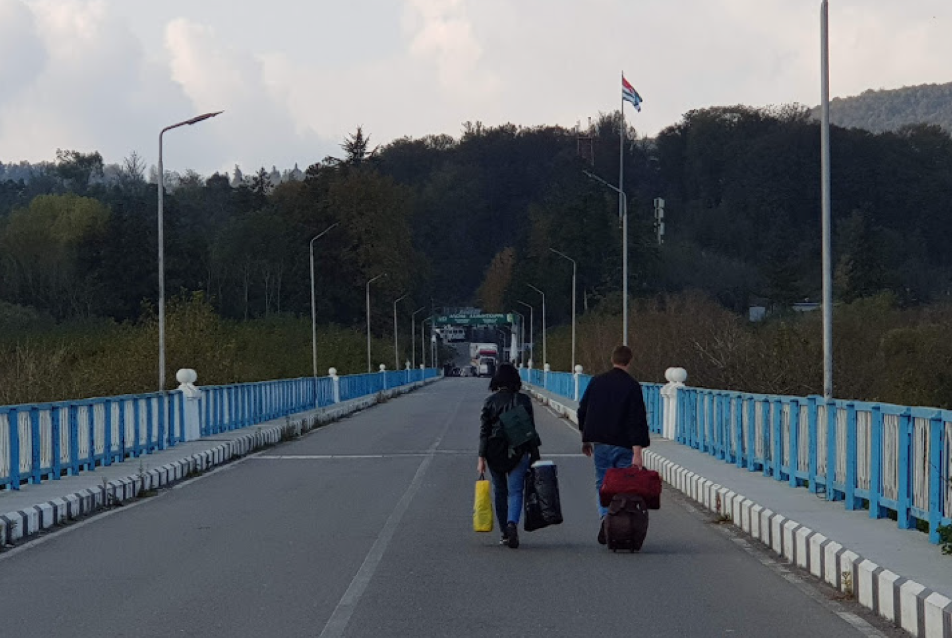საერთო ცხელი ხაზი +995 577 07 05 63


The Social Justice Center won a crucial legal dispute about the disabled person living in Abkhazia,[1] which the Tbilisi Court of Appeal upheld on February 22, 2023. The Court of Appeal equated persons with neutral identity cards legally residing in the occupied territory to citizens of Georgia and pointed out that the principles of the social and lawful state, taking care of the integration of people living in the occupied territory, including the disabled, and ensuring access to essential services are a positive obligation of the state.
In 2021, a severely disabled person living in Ochamchire (Abkhazia) who holds a neutral identity card of Georgia applied to the Social Service Agency of Georgia for a pension of disabled people. Unfortunately, the Social Service Agency did not uphold his request and pointed out that since he was not a citizen of Georgia, he could not benefit from such social assistance.
Agency’s decision was appealed to the court by the Social Justice Center, which argued that the state has a positive obligation to ensure the right to minimum living conditions, which is directly related to the right to life and self-development, to benefit from social assistance, to have adequate shelter, etc., and represents the main principle of the social state. It cannot be related to the identifying document and the legal address. In addition, we believe that the state's complete protection, integration, and support of the people living in the occupied territory expresses the declared de-occupation policy of Georgia. In this case, the state did not properly understand and respect these objectives and obligations.
Like the first instance, the Tbilisi Court of Appeal considered the long-term practice of the Social Service Agency as illegal, which did not provide adequate social support to persons with a neutral identity card. The mentioned case is precedential, and we are sure that in the future, it will lead to expanding social security guarantees for persons with a neutral identity card and new legislative changes for this purpose.
It should be noted that at the time, the introduction of the neutral identity card mechanism by the state of Georgia was a step forward in protecting the rights of people living in the occupied territories, de-isolation, and increasing mobility with Georgia. The current legislation grants certain social benefits to persons with such a document, including access to state health-care programs; general, higher, and professional educational institutions, registration as an entrepreneur and tax-payer; The right to open a bank account, as well as the right to receive a state grant, however, does not extend to them such basic social guarantees and programs as a pension, including the pension for disabled persons, municipal housing services, monetary benefits. This approach does not meet the goals of the real protection of people living in the occupied territories within the social security system of Georgia. Significantly, the number of people receiving a neutral identity card is quite low, which can be explained by the scarce social guarantees related to this status.
Despite succeeding in both instances, the social service agency announced during the process that it would appeal the decision in the higher instance. Unfortunately, for years, public agencies have established a vicious practice of unconditionally appealing decisions in all three instances within the framework of any dispute, which on the one hand, leads to an unreasonable waste of bureaucratic and judicial resources, and on the other hand, leaves the claimants in a difficult social situation. In this specific case, a claimant is a disabled person who uses a wheelchair, lives in Tbilisi without any income or housing, and has serious health problems. He has been in this situation for almost three years, waiting for the end of the dispute, and receives support from private charities and religious organizations instead of receiving such support from the state.
In this critical case, we call on the Social Service Agency to refrain from artificially prolonging the dispute and immediately start the process of voluntary enforcement of the decision!
[1] The case details are accessible to the following link: https://rb.gy/czh0vt
The website accessibility instruction